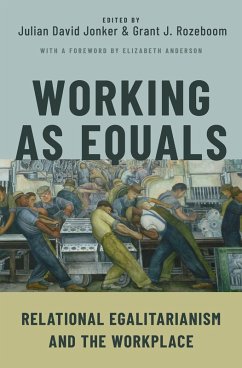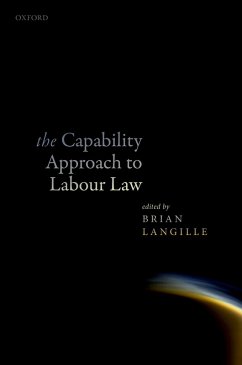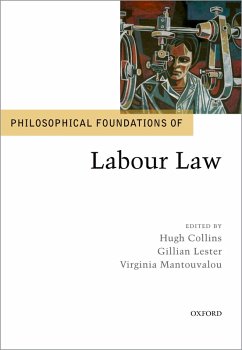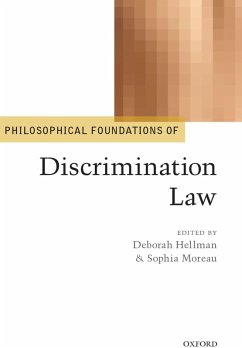
Working as Equals (eBook, ePUB)
Relational Egalitarianism and the Workplace
Redaktion: Jonker, Julian David; Rozeboom, Grant J.
Versandkostenfrei!
Sofort per Download lieferbar
15,95 €
inkl. MwSt.
Weitere Ausgaben:

PAYBACK Punkte
8 °P sammeln!
Are hierarchical arrangements in the workplace, including the employer-employee relationship, consistent with the ideal of relating to one another as moral equals? With this question at its core, this volume of essays by leading moral and political philosophers explores ideas about justice in the workplace, contributing to both political philosophy and business ethics. Relational egalitarians propose that the ideal of equality is primarily an ideal of social relationships and view the equality of social relationships as having priority over the distributive arrangements. Yet contemporary workp...
Are hierarchical arrangements in the workplace, including the employer-employee relationship, consistent with the ideal of relating to one another as moral equals? With this question at its core, this volume of essays by leading moral and political philosophers explores ideas about justice in the workplace, contributing to both political philosophy and business ethics. Relational egalitarians propose that the ideal of equality is primarily an ideal of social relationships and view the equality of social relationships as having priority over the distributive arrangements. Yet contemporary workplaces are characterized by hierarchical employer-employee relationships. The essays push discussions of the relational egalitarian tradition in new directions, helping to show its promise and its limits. They address pressing concerns at a time of widening inequality and rapid changes in the nature of work. The contributors explore two overarching topics. First, they consider whether the relational ideal of equality really applies to the workplace. In doing so, they explore the scope of the relational egalitarian approach and its promise for extending political philosophy beyond the institutions of the state. Second, they consider what workplace relations and workplace actors would have to be like in order to fulfill the relational egalitarian ideal. In examining these two issues, the contributors both flesh out the relational egalitarian ideal and add to our understanding of the ethical norms of the workplace. The book is an invaluable resource for those studying political philosophy and ethics, particularly relational egalitarianism. Additionally, lawyers interested in the foundations of labor law and antidiscrimination law will find it highly informative.
Dieser Download kann aus rechtlichen Gründen nur mit Rechnungsadresse in A, B, BG, CY, CZ, D, DK, EW, E, FIN, F, GR, HR, H, IRL, I, LT, L, LR, M, NL, PL, P, R, S, SLO, SK ausgeliefert werden.













